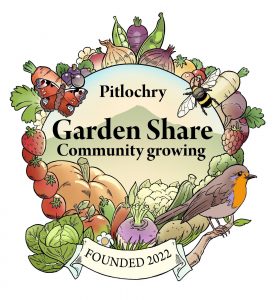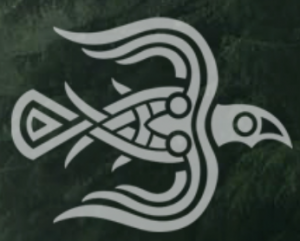(scroll down for Finnfara)
NE SĆÁLEĆE (SENĆOŦEN)/nu schala’cha (lək̓ʷiŋínəŋ)/Friends
Beyond family, our friends are members of our communities who become as important as our family connections (depending on your family, your family of origin, and your friends of course). In undertaking this journey, it’s actually been the friends who correct, guide, invite, and connect that have become vitally important to how this project looks on the land. This is a chance to honour those friends who have called members of this project in to their communities. Please visit the websites below for more information on some of our friends.
SARAH JIM https://www.sarahjimstudio.com/
On top of being a land steward, community leader, restoration coordinator, and teacher in her W̱SÁNEĆ (W̱SÍ,ḴEM) community (and many others), Sarah is also an accomplished visual artist who is just an awesome person to hang out with, and to share some laughs. If you are interested in supporting W̱SÁNEĆ arts directly, and if you’re looking for spots where you can see some of her mural work, please visit her website.
ELIJAH BUFFALO https://www.experemony.com/

ARCHIPELAGOS OF INDIGENOUS-LED RESURGENCE FOR PLANETARY HEALTH https://indigenousplanetaryhealth.ca/
Two friends of mine (Kikila) just happen to be leading one of the coolest projects to hit the Pacific. And they have a podcast that will keep you informed and laughing while exploring some pretty powerful acts of Indigenous resurgence all over the Planet. Visit their page and see how Hōkūlani Aikau (Kanaka Maoli) and Heather Castleden are supporting projects that support the wellbeing of Earth, and learn a bit about the fantastic Collective they have called together.
808 CLEANUPS https://808cleanups.org/
Kanaka Maoli territory, the archipelago of Hawai’i, is everyday inundated with tourists made possible through the illegal occupation by the USA, and the ecosystems that the Kanaka have grown in relationship with are being constantly impacted. Kimeona Kane (Kanaka Maoli) and Michael Loftin (among other in this fantastic ‘ohana) lead restoration works that seek to support the resilience of ‘aina on O’ahu, practicing their kuleana (responsibilities) to the ‘aina (land), showing that both Kanaka and malihini (visitors/guest) can take up their responsibilities.
Malama loko ea http://lokoea.org
Another fantastically vital organization healing and holding space for the ‘aina and kai (waters) of Hawai’i are Rae DeCoito (Kanaka) and a powerful community/’ohana of staff and community supporters. Malama loko ea steward a traditional fishpond on the North Shore of O’ahu, practicing their ancestral kuleana (responsibilities) and for new comers to Kanaka territory looking to take up their responsibilities, this is a living, breathing point of connection – bringing us humans into relationships with the land, waters, fish, birds, and other beings (especially all of the growing friends) that truly inspires the work behind the Learning to Listen project.
FINNFARA
The term Finnfara was shared with me (Kikila) during a conversation with Rune Rasmussen some years ago. He shared that this was a cultural practice among our Norse ancestors (who are much closer to Rune than they are to me!). Finnfara is the practice of cultural exchange that made it possible for the Norse to keep their culture dynamic in the face of becoming static, bringing in new influences and finding space for them within their cosmos (and maybe then the life-world). Unlike the white supremacists that appropriate Norse cultural tropes, the idea of Finnfara shows that the Norse were dynamic, inclusive, and people who made space for new ideas and didn’t outright reject them.
European Decolonization is essential. The mentalities that drive rampant destruction of the Earth through privileging economic accumulation, and support the oppression and genocide of Indigenous, Black, LGBTQ2+, Asian, and other peoples who are not seen as “white,” as well as the “universal” notion of “progress” (science) and “salvation” (christianity) all come from various ideas that were generated and then used in very specific ways that were either developed in or took root in Europe. This might sound unfair, and there is a lot being left out concerning hierarchy, and European class politics, but for now, briefly, it appears to many Indigenous writers (see Leanne Betasamosake Simpson, Winona Laduke, Vine Deloria, Jr., Leroy Little Bear, for example) that what came out of Europe during the colonial period, and then became globalized in the “modern period” is specifically a European problem.
Many of our European ancestors were colonized before we ever left the continent. The Roman Empire, Christianity, the industrial revolution, even social democracy are all ideas that have shaped the identities of our ancestors, and the intergenerational trauma has been used to weaponize us to dis-place and genocide Indigenous peoples’ on their territories.
Decolonization is not only taking place in settler colonies. There are groups working to decolonize European territory. Take a look at our friends, who offer us the chance to Finfara (a Norse notion of meeting peoples of a different culture, and engaging with them in a good way).
 Pitlochry Garden Share – A land-based revitalization of collective uses of land (the English “enclosed” – in other words, evicted – indigenous Scotts and Irish from their territories long before they came to Turtle Island) through community-based service and sharing, restoring food sovereignty (and eventually, once they’re better set up, traditional food systems).
Pitlochry Garden Share – A land-based revitalization of collective uses of land (the English “enclosed” – in other words, evicted – indigenous Scotts and Irish from their territories long before they came to Turtle Island) through community-based service and sharing, restoring food sovereignty (and eventually, once they’re better set up, traditional food systems).
Nordic Animism – Founded by Rune Hjarnø Rasmussen, Nordic Animism pushes back against the new-nazi uses of Norse cultural symbols and practices to support the decolonization of Norse customs. He offers workshops and courses to support lineage work, place-based practices, and a revitalization of our Norse ancestors who may have been violent, but were not inherently “white supremacist” the way they get promoted as being.
pushes back against the new-nazi uses of Norse cultural symbols and practices to support the decolonization of Norse customs. He offers workshops and courses to support lineage work, place-based practices, and a revitalization of our Norse ancestors who may have been violent, but were not inherently “white supremacist” the way they get promoted as being.
